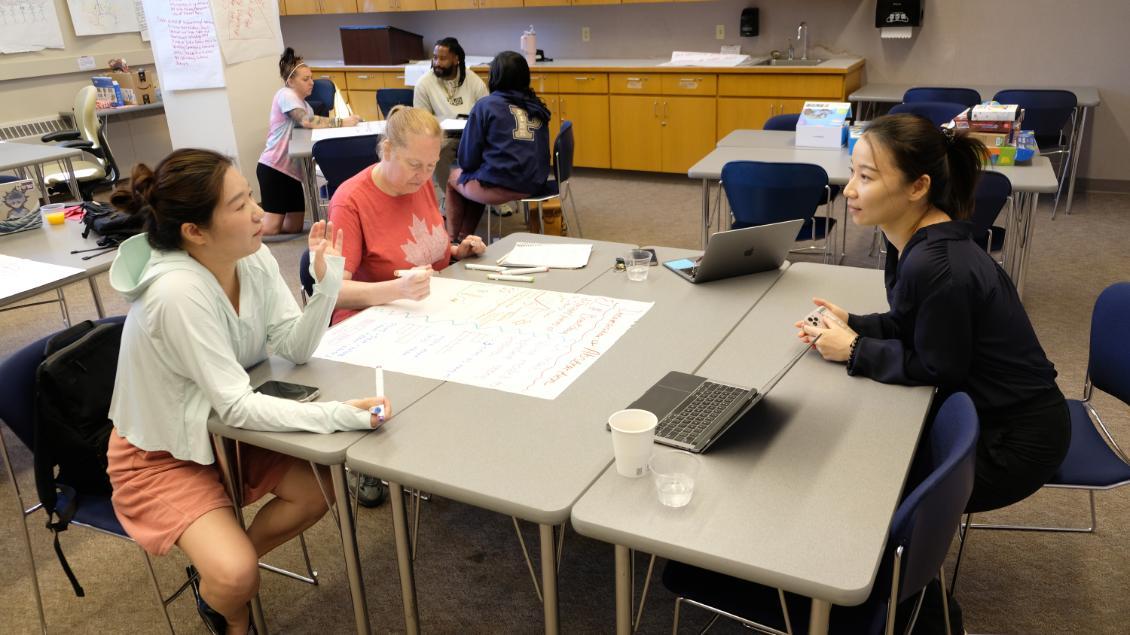Amazon supports endorsement in elementary computer science
Seattle University launches new Equity in Computer Science Education Program, the first of its kind in Washington State.

The inaugural program is a collaboration between the College of Education and College of Science and Engineering in response to the national and statewide demand for K-12 computer science teachers. The program director, Dr. Ruohan Liu, acts as a visionary for the curriculum and is the main instructor. In collaboration with faculty in the College of Science and Engineering and partnership schools in the Seattle area, Dr. Liu leads the program’s unique, equity-focused approach of incorporating computer science instruction into the K-8 curriculum.
“CS education at the elementary school level is not necessarily about preparing programmers. Our goal is to develop essential skills, like problem solving, analytical thinking, creativity and computational thinking. We want to equip students with the skills to solve problems and to create with technology” says Dr. Liu. “By integrating computer science at the elementary level, we hope to ensure all students have the opportunity to learn computer science and participate in computing activities.”
Built for practicing teachers, the program began in the summer of 2024 with over 20 teachers from Seattle Public Schools, Marysville Public Schools and a local independent school. The inaugural cohort represents both early career and experienced educators in under-resourced schools, and all participants are committed to advancing educational equity. The program takes three quarters to complete, meaning the teachers will receive their endorsement in spring of 2025 and be able to take their learnings back to the classroom for the next academic year.
“The educators who have joined us in the first year of the program are nothing short of awe-inspiring. They are deeply committed to empowering the next generation to thrive in a digital age,” says Charisse Cowan Pitre, Associate Dean for Faculty Development and Justice Initiatives. “One of our advisory members in the field of educational technology captured the power of ECSEP and the exceptional teachers best, saying, ‘ECSEP teachers will acquire knowledge that ultimately has the power to ‘ignite dreams’—the dreams and imaginations of their students who are future inventors, creators, innovators, and industry leaders.’”
With this program, Seattle University continues to be a pioneer in creating high quality educational programs to serve diverse communities and populations. The focus of incorporating culturally responsive and inclusive pedagogy is reflected in the four program courses and on-site school visits. Participant feedback from the summer session has been overwhelmingly positive, with the teachers eager to continue learning and building confidence in computer science methods.
The program also emphasizes building a network of support that will last, even when the participants are back in their classrooms. Dr. Liu plans to create a virtual meeting schedule for the cohort to connect after the program ends to share resources, and for Dr. Liu to receive feedback for the program from their teaching experiences. As the program welcomes a new cohort each year, it will build a rich network of local educators ready to collaborate and advance the teaching of computer science.
“Our innovative program is expanding access to computer science education by supporting early education teachers. By focusing on early educational exposure, fostering supportive networks, and broadening access, we’re making sure teachers are engaged in computational thinking with confidence and care,” says Amit Shukla, Dean of the College of Science and Engineering. “Our program is already making a tangible impact on diversifying the STEM pipeline.”